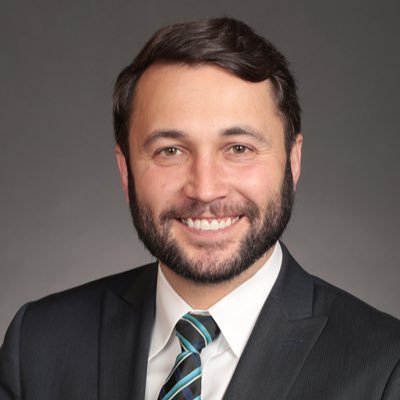Dear Friends,
(00:54) A new angle on stopping eminent domain abuse, with Bobby Kaufmann;
(09:30) Doing away with the state income tax, with Bobby Kaufmann;
(17:54) Union busting through child labor, with Charles Goldman;
(32:57) “School choice” voucher program going badly, with Charles Goldman;
(50:15) Kernza – the new grain on the block, with Lee Tesdell and Kathy Byrnes Fallon.
In recent years, in response to proposals to build CO2 pipelines across Iowa, legislative advocates for reining in the abuse of eminent domain have focused on requiring a significant threshold of landowners to voluntarily agree to a proposal before allowing eminent domain to be used.
This year, advocates are pursuing a different approach. HF 2522 (formerly HSB 608) would allow 21 state representatives or 11 senators to stop the Iowa Utilities Board (IUB) from moving forward with a request to use eminent domain for a private corporation.
The IUB could resume its deliberation only after legislators conduct an independent inquiry into the proposal and 60% of House and Senate members concur that using eminent domain is appropriate.
I would go further. Since 78% of Iowans polled feel eminent domain should not be used to build CO2 pipelines, set the legislative threshold at that level. Still, 60% is a high and reasonable bar. This week, the House Judiciary Committee voted 19 – 1 to advance the bill to the House.
The way things work currently, Governor Reynolds and the IUB have complete control over decisions involving eminent domain. In fact, it’s more accurate to say that Reynolds holds all the cards, since she appoints the membership of the IUB.
With her track record of consolidating power, Reynolds can’t be happy about this attempt — led by members of her own party — to strip away a key gubernatorial function.
But it’s fair, and it oughta become law, because HF 2522 brings control of eminent domain closer to the people.
How so? All politicians are influenced by big campaign checks. But the bigger the office, the bigger the influence. And it’s no secret that Bruce Rastetter, the CEO of one of the corporations wanting to build a CO2 pipeline, has been quite generous in his financial support of Reynolds’ campaigns. So, though Reynolds has been notably tight-lipped about her stand on the issue, it doesn’t take a rocket scientist to figure how where she stands.
Of course, lawmakers can also be bought and paid for by special interests. But given the public pressure to fix eminent domain, I trust lawmakers a lot more than I trust our Governor.
(Personal note: During my 14 years as a lawmaker, I never accepted a donation larger than $100 and refused all donations from lobbyists and political action committees. It meant I had to campaign harder, but it was liberating to know I owed no one any favors.)
I’ll conclude with a quote from Rep. Charley Thomson (R-Charles City): “I think it’s important that elected people, not appointed people, make this decision. Because if we get it wrong we answer to the voters and they can throw us out. Right now the decision making is being done by unelected people.”
Spot on. Let’s pass this bill. Contact your state representative as soon as possible.
Thanks for reading, listening, and taking action.
Ed Fallon
*******
In addition to our PODCAST, listen to the Fallon Forum on these affiliates:
– KHOI 89.1 FM (Ames, Iowa)
– KICI.LP 105.3 FM (Iowa City, Iowa)
– WHIV 102.3 FM (New Orleans, Louisiana)
– KPIP-LP, 94.7 FM (Fayette, Missouri)
– KCEI 90.1 FM (Taos, New Mexico)
– KRFP 90.3 FM (Moscow, Idaho)
– WGRN 94.1 FM (Columbus, Ohio)
– KKFI 90.1 FM (Kansas City, Missouri)
Please support the local businesses and non-profits who make this program possible. Click on their logos on the Fallon Forum website and in our weekly email, and visit Bold Iowa, and Birds & Bees Urban Farm. Thanks to Des Moines Irish Session for providing our bumper music, and thank you for supporting the civil alternative to the shock jocks!

Ed Fallon


By the time HSB608 moved from subcommittee to full committee– and became HF2522 — the first portion of the bill, which included that 60% of the chambers could pause the IUB process, had already been stripped from the bill.